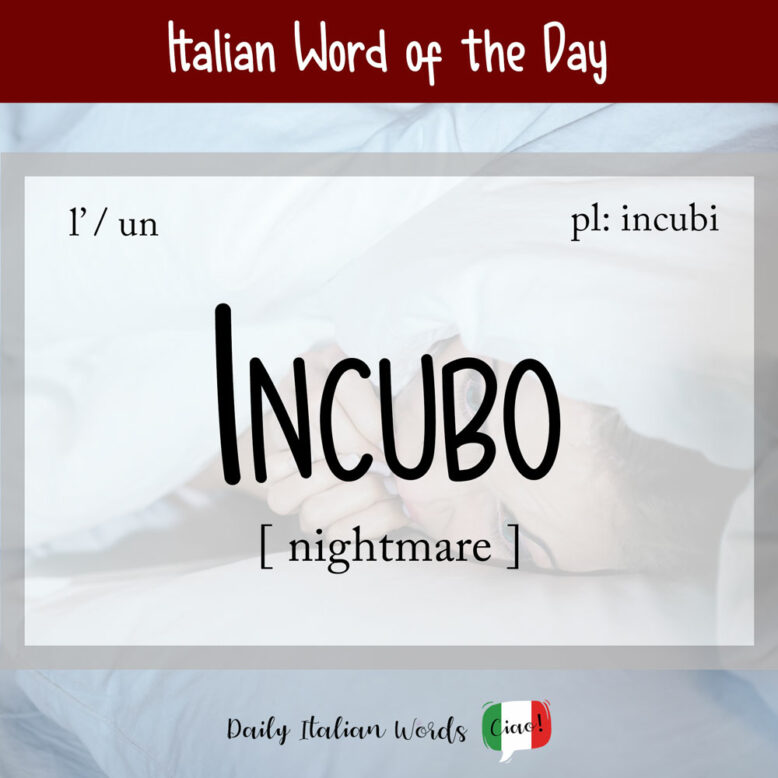Dreams (sogni) are stories and images that our minds create while we are in a phase of sleep called REM (rapid eye movement). Most tend to be entertaining, romantic or even bizarre, but sometimes you may find yourself tangled up in a frightening incubo (masculine, plural: incubi), which is the word for nightmare in Italian.

The word is derived from the Latin incubus, the name given to the mythological male demon who lies upon sleeping women in order to engage in sexual activity with them. (Pretty scary, don’t you think? 😨)
Trace this word even further back and we find that it has roots in the Late Latin verb incubare meaning ‘to lie upon, to hatch‘ which is also where the English verb incubate comes from!
In order to say to have a nightmare in Italian, you have the choice between two verbs: avere (to have) and fare (to make/do).
Stanotte ho avuto un incubo terribile.
Last night I had a terrible nightmare.
Just as you can say bad dream instead of nightmare in English, you can also say brutto sogno in Italian.
A figurative meaning for incubo is an unpleasant or frightening experience or a person or situation that is difficult to deal with: in essence, a nightmare come to life.
Quel direttore era un incubo per noi dipendenti.
That manager was a nightmare for us employees.
Heather Broster is a graduate with honours in linguistics from the University of Western Ontario. She is an aspiring polyglot, proficient in English and Italian, as well as Japanese, Welsh, and French to varying degrees of fluency. Originally from Toronto, Heather has resided in various countries, notably Italy for a period of six years. Her primary focus lies in the fields of language acquisition, education, and bilingual instruction.


